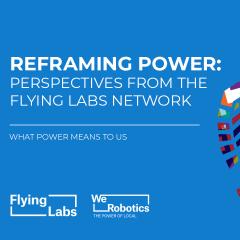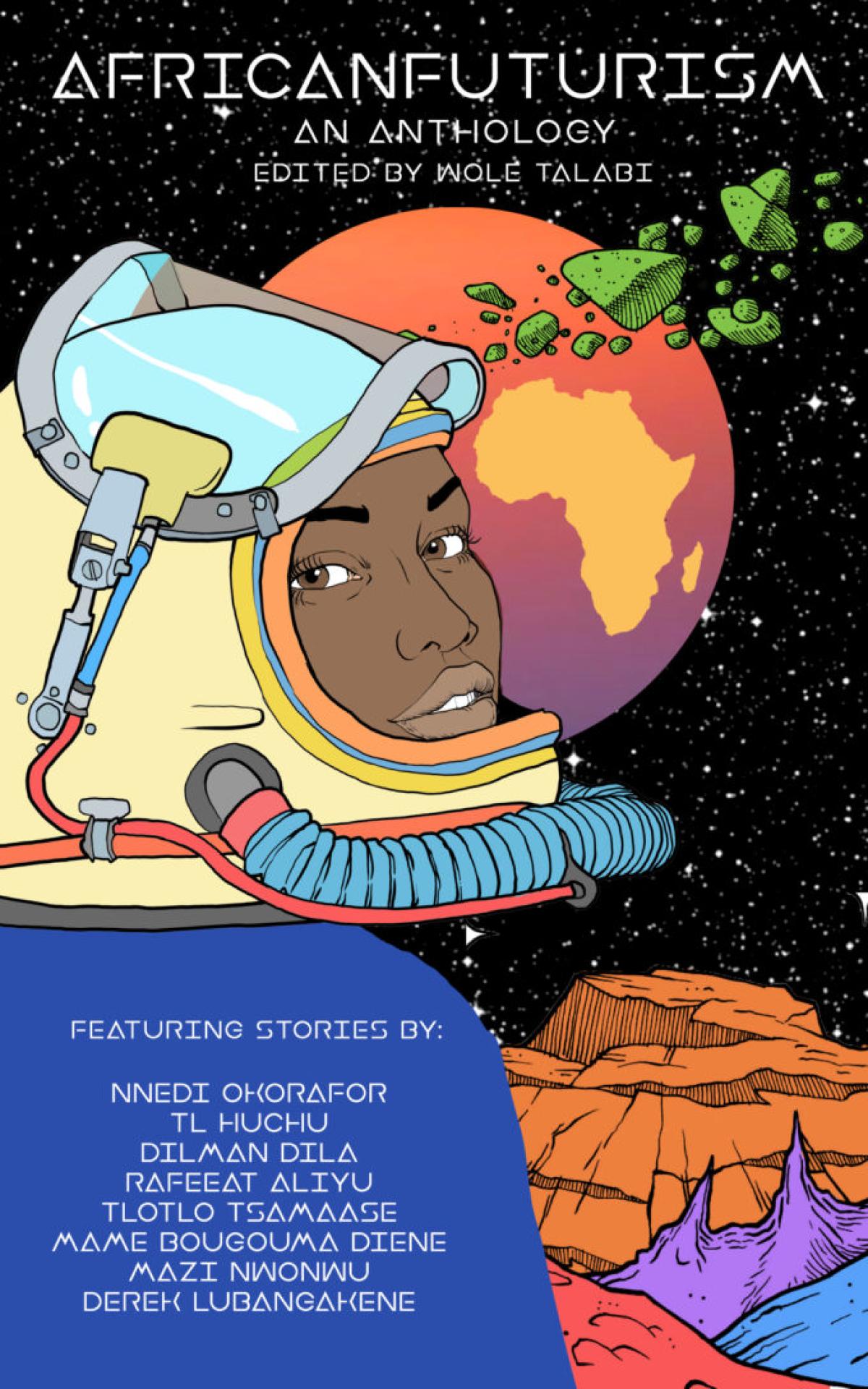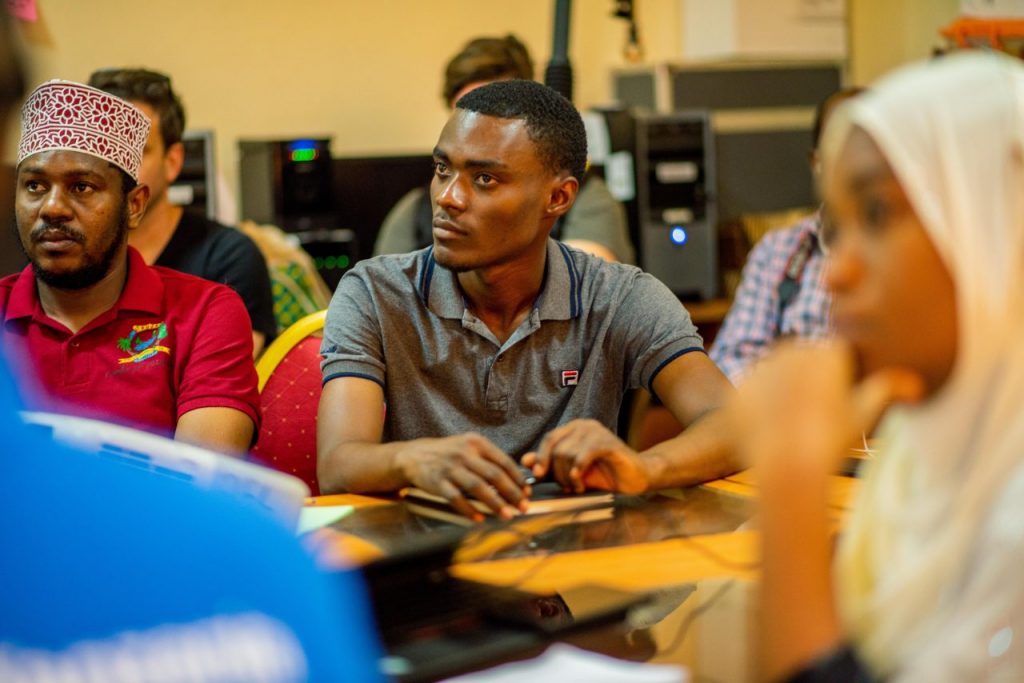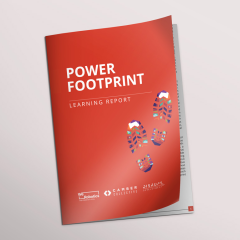
Shift the Power: Is this the Most Appropriate Language? (Updated)
December 8th, 2020

Update: We have updated this blog post to reflect our shift in language from "We shift the power to local experts", to our preferred wording: "We shift the power with local experts."
Many of us at WeRobotics are fans of science fiction, which is why we loved reading Africanfuturism: An Anthology | Stories by Nnedi Okorafor, TL Huchu, Dilman Dila, Rafeeat Aliyu, Tlotlo Tsamaase, Mame Bougouma Diene, Mazi Nwonwu, and Derek Lubangakene. The book is now very kindly available for free download here.
The first two chapters delve specifically into language, namely the term “Afrofuturism,” and why Nnedi Okorafor had to create a new term, “AfricanFuturism,” to reflect her writing more accurately. “I needed to regain control of how I was being defined.” To explain the distinction between the two terms, she shared the following example:
Afrofuturism: Wakanda builds its first outposts in Oakland, CA, USA.
Africanfuturism: Wakanda builds its first outpost in a neighboring African country.
Language matters. Identity matters. Words have power, which brings us to the words “Shift the Power.”
Why did we adopt this term as opposed to another? Why is this term problematic? Is there another term that better describes our agenda? What is our agenda? What do we want?
We want to enable successful, impactful, and sustainable social good projects by reducing power asymmetries, inequality, and social injustice. Our primary motivation is to enable Flying Labs in the Majority World before Oakland, CA, USA. I liked how David Garcia put it: “Anticolonialism as Disaster Risk Reduction and Climate Action.” The very act of anticolonialism is in itself an act of disaster risk reduction, action on the climate crisis, and so much more. Anticolonialism also enables more effective and sustainable disaster risk reduction and climate action. We seek to do our part by shifting power with local experts to reduce the power asymmetries, inequalities, and the social injustice that pervade much of the social good sector. Some argue that the very act of shifting power can be a social good act in-and-of-itself (if/when authentic). This brings us back to the question of language. Why not use the term anticolonialism, decolonization, or anti-racism?
Well, we have used these terms. Anticolonialism and decolonization are powerful and loaded words. Should we, as a Western-based organization, be using this language? Some have argued that Western-organizations have no business using this language unless they’ve experienced the direct horrors of colonialism themselves. Being part of the West, we are part of the system that architected and orchestrated colonialism. There’s no escaping this. We thus feel compelled to call out the power asymmetries that originate from this system and from which we originate. It’s the reason that we’ve talked about decolonizing technology. Still, we fully recognize that anticolonialism and decolonization are words that must not be thrown around without careful thought, sensitivity and consideration. We must not co-opt this language. We recognize that "decolonization is not a replacement for social justice and social good," as Aarathi Krishnan puts it.
What about the language around “Shift the Power”? This term is undoubtedly less loaded. We were drawn to this term because it was already in use and promoted by a coalition of individuals and organizations to describe their shared commitment. We’ve adopted their hashtag #ShiftThePower on social media to signal our solidarity and allyship with the movement. Is this the perfect term to describe what we do? Is it beyond reproach? There is perhaps no ideal term out there, let alone one beyond criticism. When Western organizations use the term Shift-the-Power, they may imply that they in “the West” are the ones with the power while the “Other” is the one without power. Some will argue that this is disempowering; in the same way that using the word “victim” to describe those affected by disasters is disempowering. Doing so suggests that the “Other” has no agency and no capacity, that they are utterly helpless.
 Flying Labs drone training at the University of Zanzibar
Flying Labs drone training at the University of Zanzibar
This is NOT what we have in mind when we talk about Shift the Power. For us, The Power of Local already exists, and always has. For us, it’s about shifting power with local experts. This does not mean that local experts have no power in the first place. Flying Labs are hosted and coordinated by existing organizations that have power. So when we talk of Shifting the Power, what we’re saying is that we are a local-first organization committed to augmenting The Power of Local. Perhaps we ought to use the words Augment- or Strengthen-the-Power rather than Shift-the-Power.
In any case, language matters. And explaining our thought process transparently and openly is essential to us. We very much welcome suggestions on what terms might be the most appropriate to describe the changes we want to see in the world. In the meantime, we’ll continue to use “Shift the Power” to be part of an existing coalition that brings direct attention to power asymmetries. We believe that our strong emphasis on “The Power of Local” clearly communicates that the local is powerful. The local has the power to more effectively and sustainably tackle pressing local challenges.
Category(s):
Recent Articles

